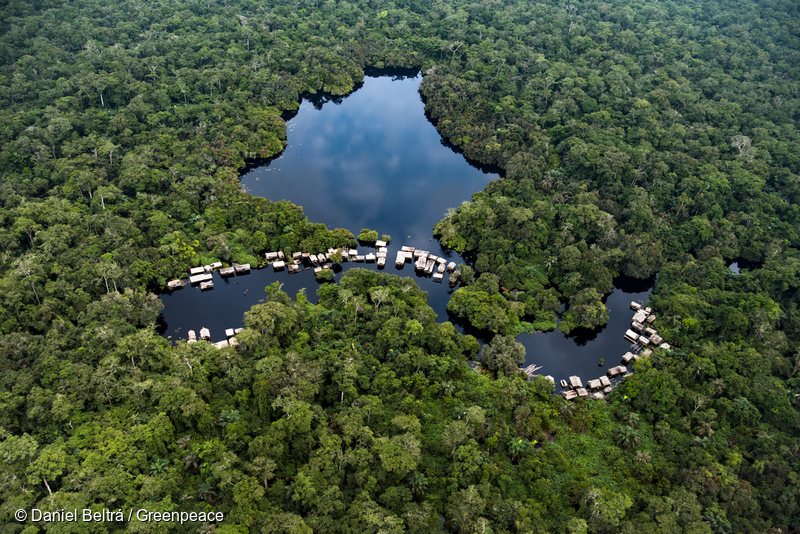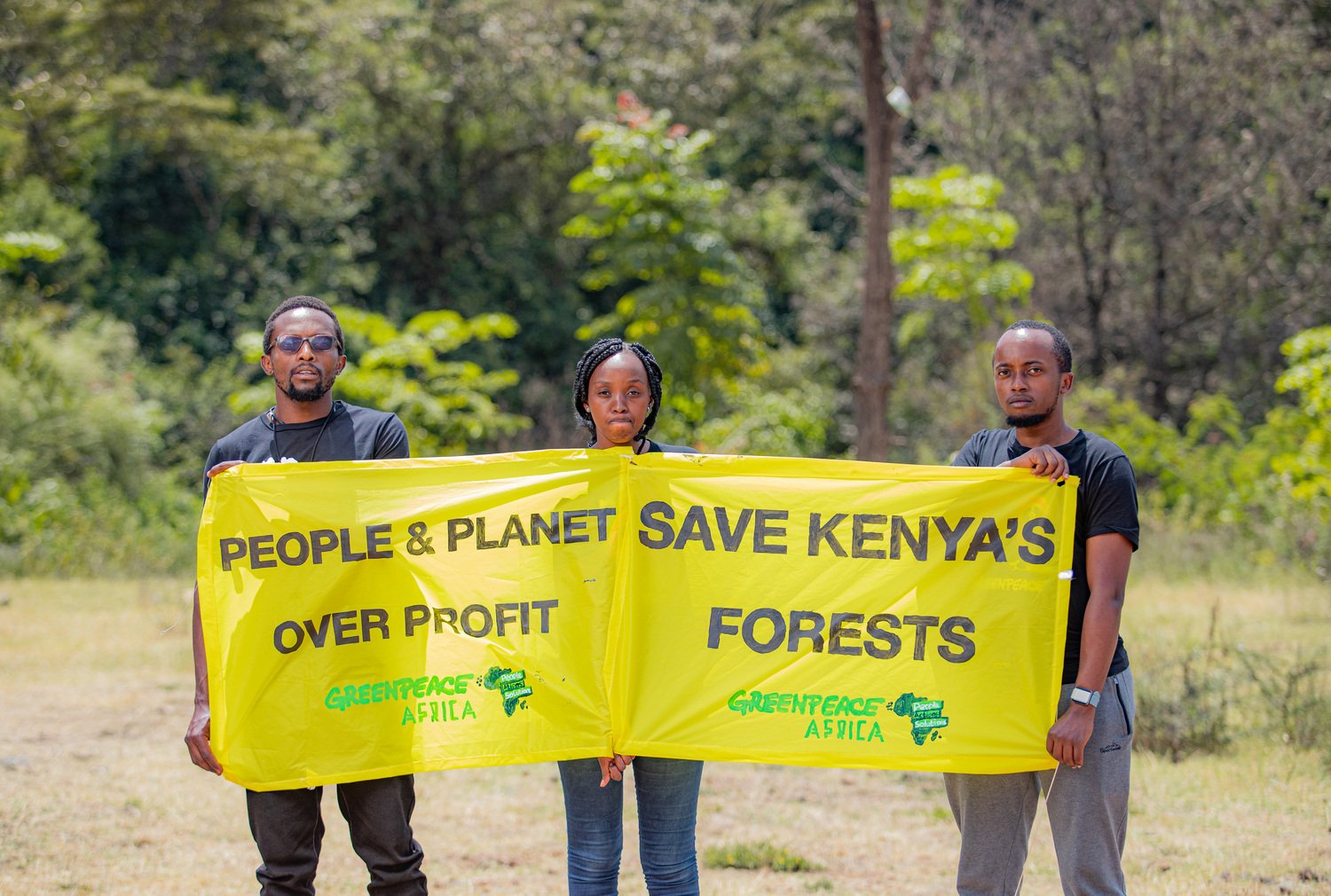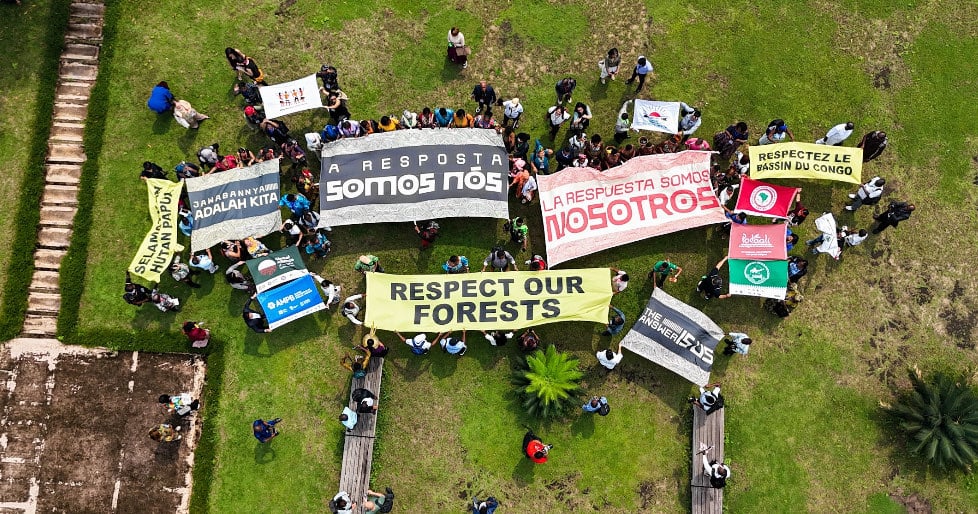Kinshasa, June 26, 2019 – Greenpeace Africa and scientists from the Universities of Leeds (UK) and Kisangani (DRC) have concluded an expedition to the peatlands of the Congo Basin forest in the Equateur Province.
“The world’s largest tropical peatlands need protection from all industrial activity”, says Irene Wabiwa, Greenpeace Africa Senior Forest Campaign Manager. “Industrial activity in the peatlands can detonate a 30,6 billion tonnes carbon bomb, more than the annual emissions of 24 billion cars”.
Aimed at highlighting the importance of the peatlands for the climate and for the local communities which depend on them, this Greenpeace Africa expedition – 16 to18 June – follows up on the CongoPeat project, which began in 2017. The project studies the peatlands in the Congo Basin forest, a contiguous area stretching from the DRC to the Republic of Congo and constitutes about 1/3 of global carbon stocks in tropical peatlands.
Since 2018, Greenpeace Africa has repeatedly highlighted the threats to these ecosystems. This includes forest concessions and oil exploration attributed by the DRC, as well as the by the Republic of Congo.
Greenpeace Africa calls on the governments of the Republic of Congo and the Democratic Republic of Congo to ban all industrial activity in the world’s largest tropical peat bogs, home to the Congo Basin forest. Greenpeace Africa further calls on all international donors to stand up for these strategic areas.
“We still know very little about how peatlands in the Congo Basin function. It is vital that the scientific community gets to study how this huge carbon stock can continue to play its role in mitigating climate change”, according to Dr. Greta Dargie of Leeds University.
Peatlands are also affected when the surrounding lands are affected: “any large scale industrial activity in the area will affect the aquifer that maintains the life of these ecosystems”, explains Prof. Corneille Ewango (Kisangani University).
“Protecting the peatlands is not only a high climate priority. It is also a human rights issue”, adds Guy Kajemba, a civil society representative who joined the trip. “Communities whose lives depend on peatlands and their unique biodiversity must be at the heart of any initiative geared towards their management”.
Media contacts:
Tal Harris, International Communications Coordinator, Greenpeace Africa, +221 776 73 04 96, [email protected]
Irène Wabiwa Betoko, Senior Forest Campaign Manager, Greenpeace Africa, +243 997 756 102, [email protected]



